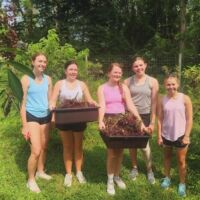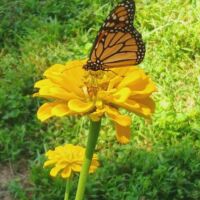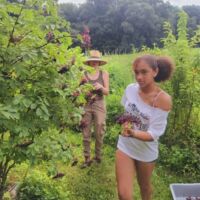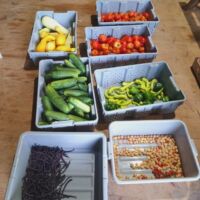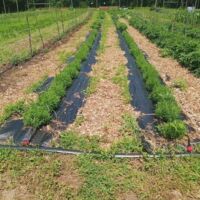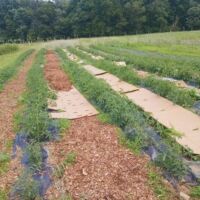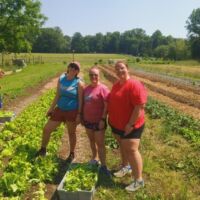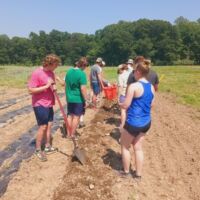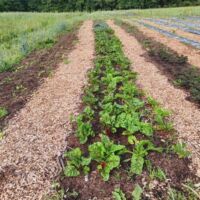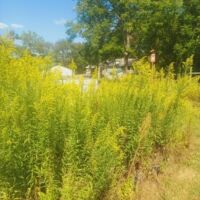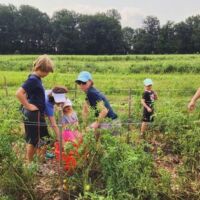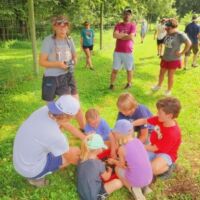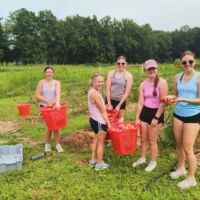The Wittel Farm Growing Project is celebrating its 10th anniversary of planting, growing, and sharing fresh vegetables with neighbors in need. Just as important as the food that is shared is the connection with God the Creator and the good creation that sustains all life. This land, entrusted to the Lutheran Camping Corporation and the Lower Susquehanna Synod, reflects the call to feed the hungry and care for God’s Creation as a sacred place of God’s saving activity. God dwells in, with, and under the soil, plants, animals, trees, birds, butterflies, and bees, and God’s love is made real in the fruit of creation experienced each day at the farm.
As an ecological and educational farm, Wittel Farm welcomes many community members for hands-on learning each week. From composting to seed-saving, participants learn practices that enhance the well-being of both people and the land’s ecology.
The stewardship of this land involves faithful disciples and many community volunteers, without whom the growing project could not accomplish the many good things happening there. In summer 2025, the farm welcomed over 320 volunteers, including more than 120 children under age 18. Many campers from Camp Kirchenwald visited the farm as part of their week of faith formation and service. A Diakonos group from Wisconsin even made the local news when a WGAL News 8 crew came to cover a good-news story about the farm in July.
New congregations and student learners have also joined the project this year. The Academy from Lebanon brings court-adjudicated and at-risk youth at least monthly. A STEM camp from Brightside Opportunities Center made two field trips, and Life Church Lancaster became an active congregation at the farm in 2025. The goal for 2026 is to increase the number of congregations actively supporting the farm. Those interested in joining can email wfgp@wittelfarm.org.
This summer, biodiversity at the farm increased through the addition of annual flowers in the vegetable beds. Zinnias and marigolds attracted six different butterfly species, hummingbirds, and two native bee species. Over 25 different vegetables were grown—the most diverse crop in the project’s history. Native wildflower seeds were sown to enrich habitat for pollinators and increase the land’s natural beauty.
Extreme weather made planting and production challenging, yet harvesting began in late May and will continue through late October. This year marks the project’s most diverse harvest and its longest harvest season. Adaptation remains essential to ecological farming, and lessons learned from this year’s crops will shape future planning.
Most of the produce continues to be donated to the charitable food network, including the Lancaster County Food Hub, Lebanon County Christian Ministries, and several smaller distribution partners.
The Wittel Farm Growing Project invites all to visit throughout the year for spiritual retreat, ecological learning, and volunteer opportunities that feed neighbors and serve God’s Creation.
—Rev. Dr. Matthew Lenahan, WFGP Director


